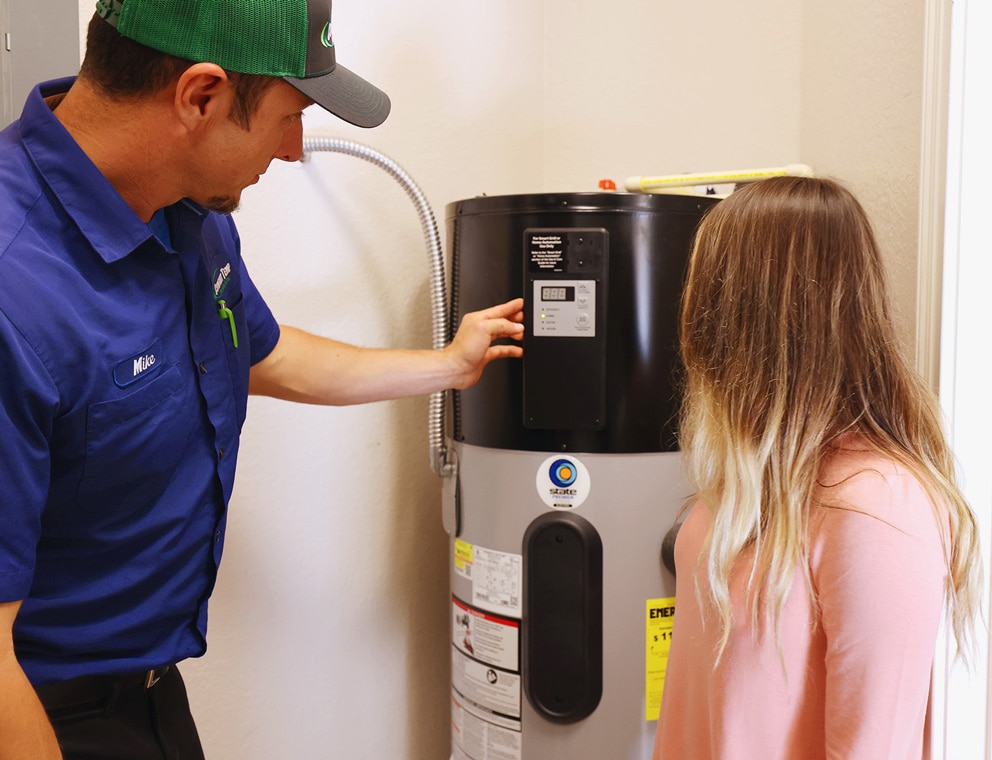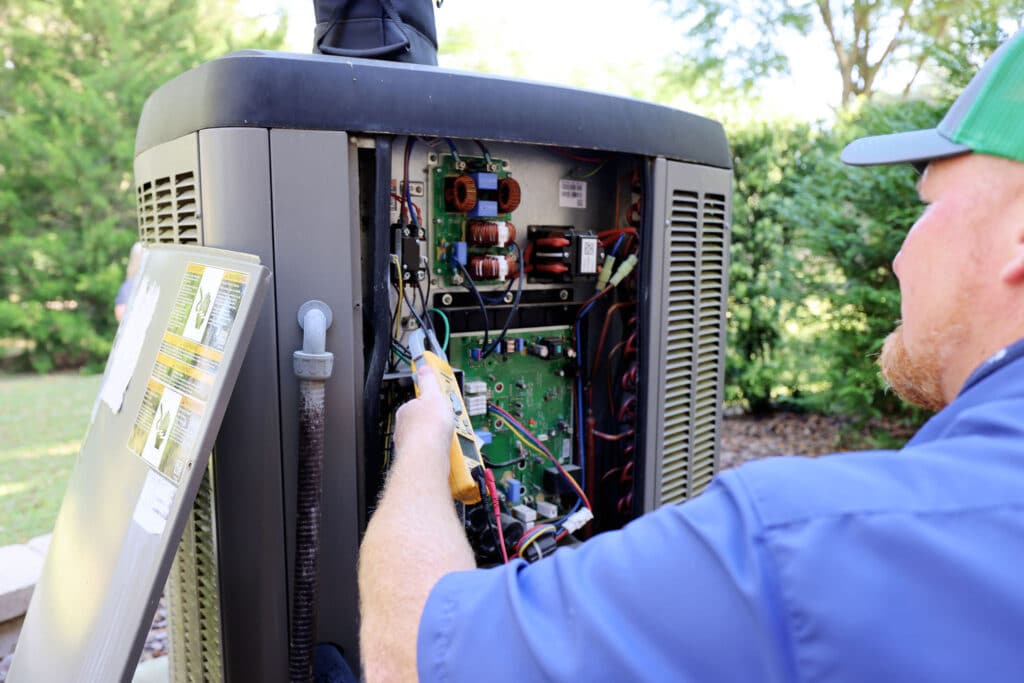Do you like to sleep bundled under blankets? Or are you the type of person who only uses one sheet throughout the night? Whatever your preference, you likely find temperature greatly impacts your quality of sleep and your comfort level. The question of the perfect sleeping temperature is one many people ask, especially in months when the weather seems to fluctuate from hour to hour.
To help you get the best night’s sleep possible, we’ve put together a guide to finding the ideal sleeping temperature, no matter the weather, and what to do if you find yourself a little too hot or cold.
Challenges to Finding the Perfect Sleeping Temperature
Finding the perfect sleeping temperature for you can be more complicated due to a number of factors. By understanding the potential challenges to comfortable sleep, you can begin to make a plan to find the ideal temperature for you and your home.
Poor HVAC Circulation
If you find yourself hot and tossing and turning no matter how low you set your thermostat, the issue could be your HVAC system itself. Whether due to an aging unit, air ducts in need of maintenance, or just an air filter that needs to be changed, you could find your bedroom isn’t getting enough airflow to keep you cool and comfortable throughout the night. If simple fixes like changing an air filter don’t improve the issue, call in a professional for an inspection and repair.
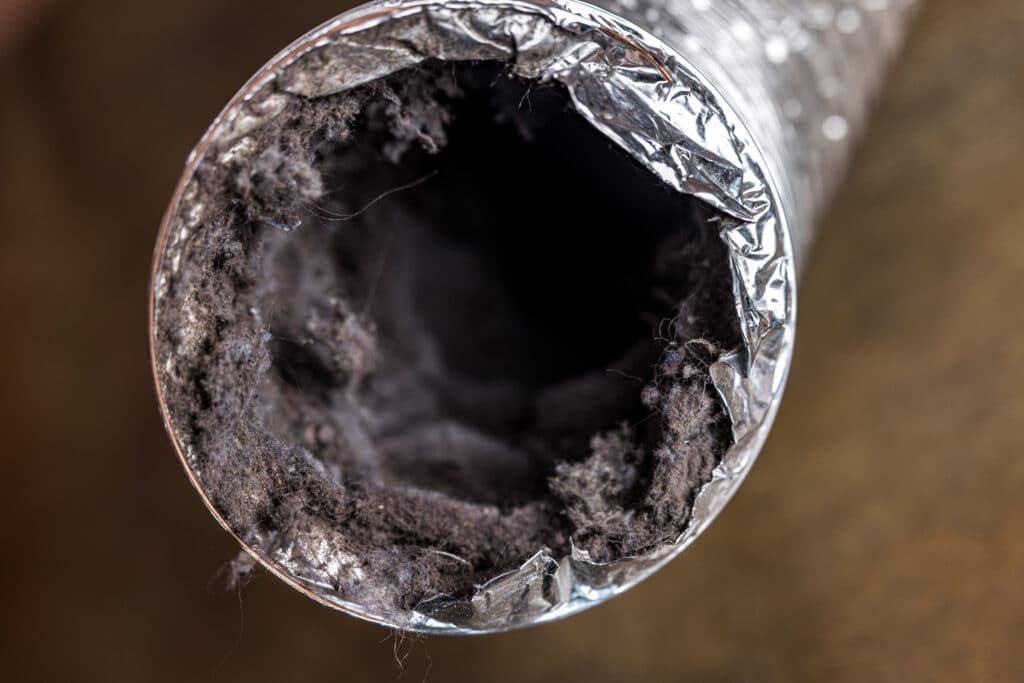
Florida’s Unpredictable Weather
One of the biggest challenges to sleeping comfortably throughout the night is Florida’s vast and quickly changing weather, especially in the fall and winter months.
Florida’s falls and winters are notorious for having hot days, when you need your AC on, and cold nights, when you may need to switch to heat. This constant back-and-forth can make it difficult to keep your home at the ideal temperature for sleeping in winter and puts a strain on your heating and cooling systems.
And this issue doesn’t go away in the warmer months. You may struggle to find the best temperature for sleep in summer because your HVAC has to work hard against the pressing heat and you don’t want super high energy bills.
Different People’s Preferences
If you have someone else in your home, whether it’s your partner, roommates, or children, it can be hard to find a compromise for the house temperature. Everyone feels and experiences temperatures differently and has their own preferences for the ideal temperature.
This can be a common issue for new couples since men and women actually experience temperature differently. The ideal sleeping temperature for women may be different than men’s because women typically have a lower metabolic rate, causing them to feel colder and set the thermostat at a higher temperature. Being able to find a compromise that works for the people in your home is key to a good night’s sleep for everyone.
A Temperature-Absorbing Bed
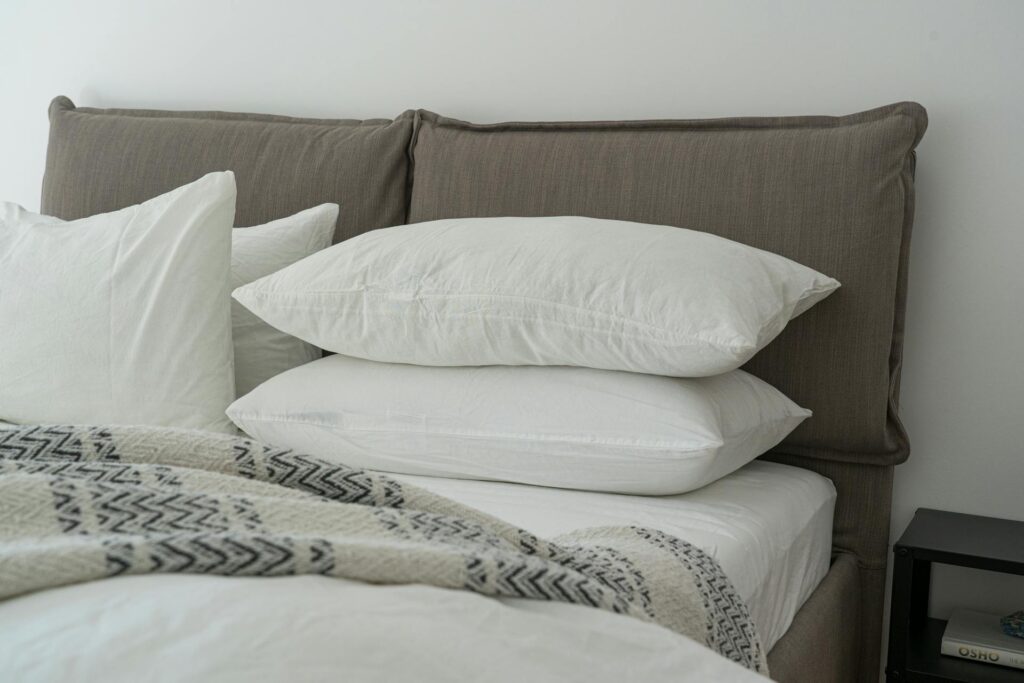
Even if you have found the sweet spot on your thermostat for sleep, you may find yourself still sweating when you get tucked into bed. If this is the case for you, the culprit may actually be your bed or even your sheets and blankets. Some beds, especially memory foam mattresses, absorb and trap your body heat. This can cause you to feel hot as the mattress essentially blocks air flow and heats up as you sleep.
To fix this, we’d recommend you look into cooling foam mattresses or a spring mattress as they don’t trap as much heat. If a new mattress isn’t possible at the moment, you can also switch to light, airy sheets that can help some of your body heat escape rather than being absorbed into your bed.
How to Keep Your Home at the Ideal Sleeping Temperature
If you want to stay comfortable throughout the night and day, one of the best investments you can make is a smart thermostat. These types of thermostats can set your home to different degrees depending on the time of day and where you are. For example, it can raise the temperature when you’re away to lower your bill and prevent your HVAC from working too hard. Or at night, it can reduce the temperature by a few degrees to get to that optimal sleeping temperature. It also has the added benefit of energy efficiency and low monthly energy bills!
Is There an Ideal Sleeping Temperature?
Did you know that science says there’s actually an objective ideal sleeping temperature? According to doctors, anywhere from 60 to 65 degrees Fahrenheit is the ideal temperature for the human body to sleep comfortably. This is because as you fall asleep or begin to get tired, your body begins releasing heat and lowering your metabolic rate to prepare you to fall asleep. Cooler temperatures can help you fall asleep faster and stay asleep throughout the night, so set your smart thermostat to begin cooling down around the time you want to start winding down.
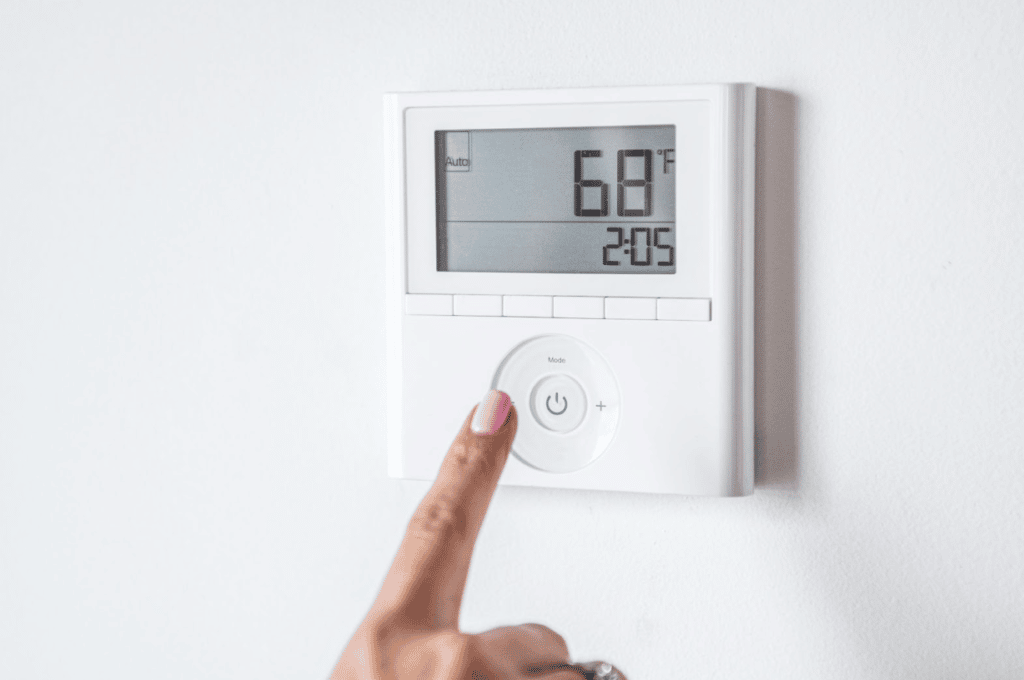
On the other hand, higher temperatures may hinder your ability to achieve restful sleep, as they have been associated with a decrease in deep REM sleep. Furthermore, higher temperatures can be associated with higher humidity levels, which can cause your bedroom to feel stuffy and warm and prevent a comfortable sleep.
Ideal Sleeping Temperature for Babies & Older Adults
Some research indicates that babies and older adults have a different ideal sleeping temperature range. While 60 to 65 degrees is not necessarily harmful to babies or older adults as long as they are clothed properly and in safe sleeping conditions, babies may sleep better in temperatures as high as 68 degrees, and older adults were found to sleep better and feel more comfortable at 68 to 77 degrees.
What If I’m Too Cold?
If you’re reading this and you’re thinking 60 to 65 degrees is far too cold, there are some things you can do to keep yourself warm. First, you’ll want to ensure your AC is actually reaching the temperature you want. Is your AC constantly running? Is your heat not turning on? Both these factors can make you and your home colder and may require a professional HVAC technician’s help to solve.
If your HVAC is running properly, you may want to invest in extra blankets to keep yourself cozy all night long, or you may even enjoy heat-absorbing mattresses like foam mattresses. Luckily, studies have shown that being colder doesn’t hinder sleep as much as being hot does; however, if 65 is simply too cold for you, feel free to raise the thermostat a few degrees!
What If I’m Too Hot?
If 60 to 65 degrees sounds too hot for you, there are ways to keep yourself comfortable throughout the night. If you don’t have a ceiling fan, a standing fan can be a great investment to keep you cool throughout the night. You may also want to invest in lighter sheets and pajamas so that your body isn’t getting trapped by your clothes or blankets.
Keep in mind that your HVAC functions optimally anywhere from 72 to 78 degrees, so you won’t want to push your thermostat much lower than 65 degrees. If you constantly feel hot and your HVAC is not reaching your thermostat’s set temperature, talk to an HVAC professional about insulation, ventilation, and any repairs your unit may require.
Live Comfortably & Sleep Soundly with Comfort Temp’s HVAC Services
Your HVAC plays a huge role in your comfort and sleep quality. That’s why our team at Comfort Temp is dedicated to maintaining, repairing, and installing HVAC units that help keep your home comfortable all year long. If your sleep is being affected due to poor air quality or circulation, call the experts at Comfort Temp today and enjoy a good night’s sleep again!
